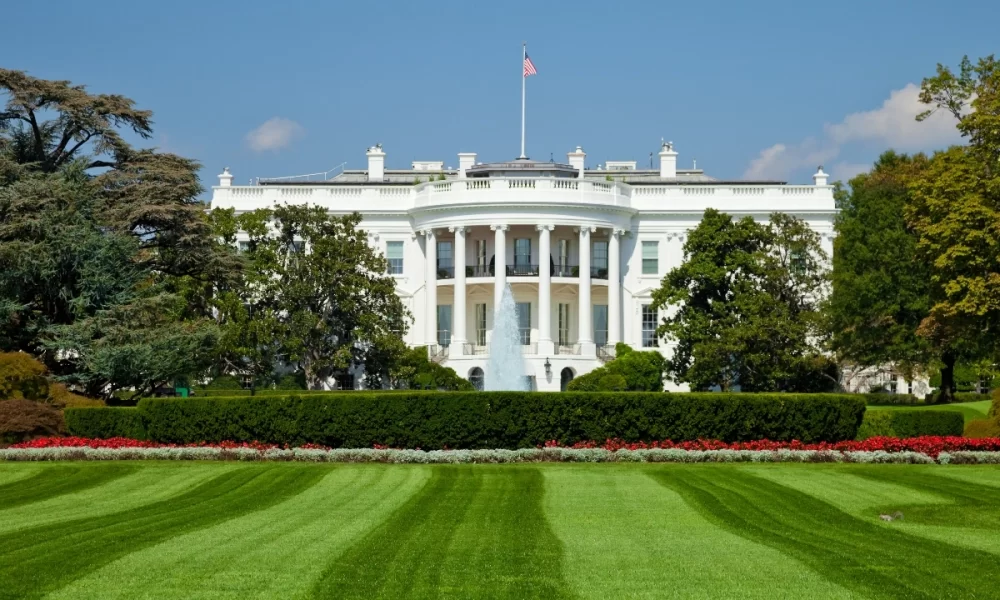Business
‘Biggest thing, ever’: Marijuana rescheduling recommendation hailed

The disclosure Wednesday that top Biden administration health officials this week officially recommended marijuana be reclassified from a Schedule 1 substance to Schedule 3 – the same category as Tylenol with codeine – was hailed as the biggest development in MJ policy reform in more than 50 years.
Marijuana investors concurred, boosting stocks of major U.S. cannabis companies approximately 20%.
“It’s historic. It’s the biggest thing that’s happened in cannabis reform at the federal level, ever,” Shane Pennington, a partner at Washington DC-based law firm Porter Wright, told MJBizDaily in a phone interview.
While much more needs to happen before tangible effects are felt – including a separate U.S. Drug Enforcement Administration review and, possibly, a judicial review –the health officials’ statement that cannabis has medical value remains “a game changer,” Pennington noted.
“This is essential to ending the dumpster fire that is cannabis policy,” added Pennington, who has published extensively on federal marijuana law.
“It’s a huge deal. And it has an even broader effect.”
Rescheduling marijuana would dramatically reduce the steep federal taxes now paid by U.S. marijuana companies.
It also could spur more banks and financial institutions to offer traditional banking services to cannabis companies, reducing their long dependency on cash.
The letter Tuesday from Assistant Secretary for Health Rachel Levine, sent to DEA Administrator Anne Milgram – first reported by Bloomberg News – is the latest development in a first-of-its-kind process launched last October by President Joe Biden.
For more than 50 years, federal law has classified marijuana as a Schedule 1 controlled substance, officially designated as more harmful than fentanyl and methamphetamine and on the same level as heroin and LSD.
Schedule 1 cripples industry
Long dismissed as scientifically and medically unsound by a generation of experts, that classification has also stymied the state-legal marijuana industry, shutting off access to banks, blocking typical business deductions on tax returns and forbidding interstate commerce.
On Oct. 6, 2022, calling current federal drug laws a “failed approach,” Biden announced he would direct the attorney general and the secretary of the Department of Health and Human Services to “review expeditiously how marijuana is scheduled under federal law.”
Earlier in the summer, Health Secretary Xavier Becerra suggested that an HHS review could be completed by the end of the year.
Instead, “This administrative process was completed in less than 11 months, reflecting this department’s collaboration and leadership to ensure that a comprehensive scientific evaluation be completed and shared expeditiously,” an HHS spokesperson told MJBizDaily via email.
A DEA spokesperson confirmed receipt of the letter from the assistant secretary for health in a statement Wednesday:
“DEA has the final authority to schedule or reschedule a drug under the Controlled Substances Act. DEA will now initiate its review.”
The agency declined to comment further.
Neither agency provided a copy of the letter, which MJBizDaily requested via a Freedom of Information Act request.
DEA response before Election Day – or sooner?
There’s no hard and fast deadline for a DEA response, but most observers believe a recommendation is likely before the November 2024 presidential election.
However, the unprecedented speed with which the HHS completed its leg of the process suggests the DEA could issue a recommendation even sooner – which would then trigger a federal rulemaking process.
More federal reform would be required for marijuana companies to legally ship product between states or other countries.
But the cannabis industry was near ecstatic Wednesday, as the value of shares in major multistate operators such as Cresco Labs and Green Thumb Industries shot up by more than 20%.
The gains reflected the knowledge that the IRS’ punitive Section 280E, which prohibits marijuana companies from taking typical business deductions on their federal tax returns, would no longer apply – even as business leaders called for rescheduling to happen on an even more accelerated timeline.
“We hope that this recategorization occurs promptly,” said Boris Jordan, executive chair of New York-based MSO Curaleaf Holdings.
“It’s very clear that Americans are ready for this, and it’s time for our political leaders to catch up.”
The future of SAFE Banking
Wednesday’s revelation could also help break a logjam in Congress, where still-necessary reform measures such as federal legalization and banking protections remain in near-limbo.
“Ultimately, I believe that cannabis should be descheduled with strong federal regulations put in place to protect public health and safety,” said U.S. Sen. Ron Wyden, an Oregon Democrat and the lead sponsor of the SAFE Banking Act, which would forbid federal banking regulators from penalizing financial institutions that do business with state-legal marijuana operators.
Previous versions of SAFE Banking have passed the House of Representatives seven times only to be blocked in the Senate, though the bill did have an informational hearing in May.
Experts say SAFE Banking will still be necessary even if marijuana is rescheduled.
“However, the recommendation of HHS to reschedule cannabis as a Schedule III drug is not inconsequential,” Wyden added in his statement.
“If HHS’s recommendation is ultimately implemented, it will be a historic step for a nation whose cannabis policies have been out of touch with reality.”
Other lawmakers were more circumspect.
“This is a step in the right direction but it is not sufficient,” said U.S. Rep. Earl Blumenauer, an Oregon Democrat and chair of the House Cannabis Caucus.
“I hope it is followed by more significant reforms,” he added. “This is long overdue.”
Source: https://mjbizdaily.com/biden-health-officials-say-marijuana-should-be-rescheduled/